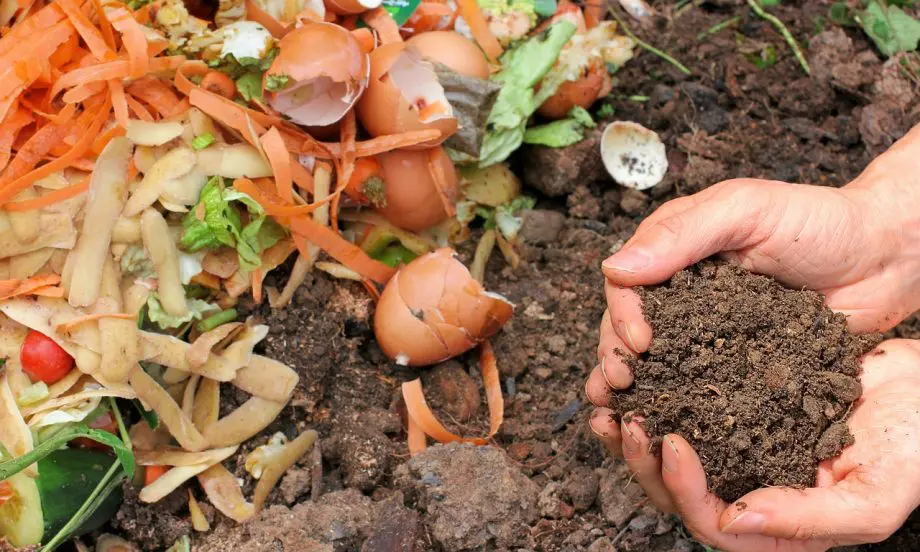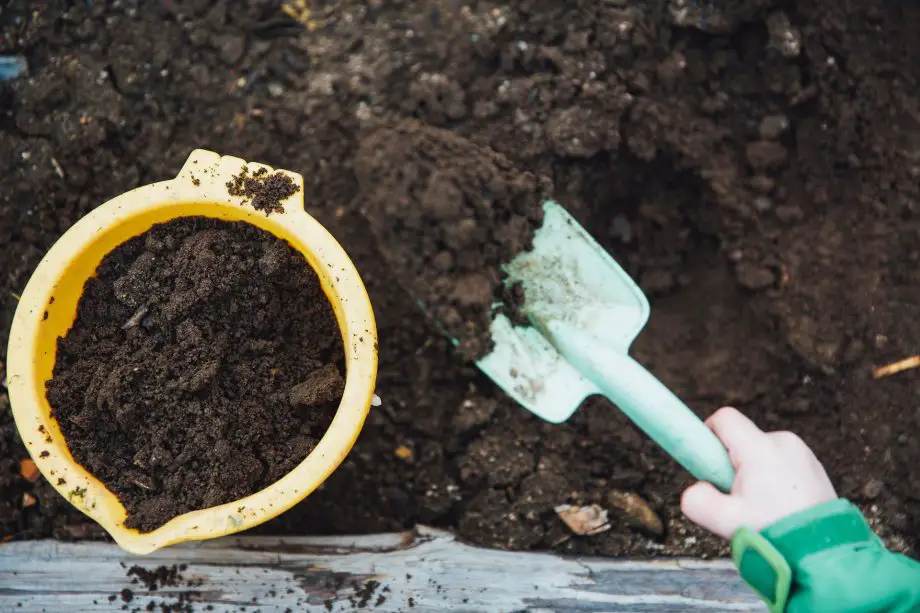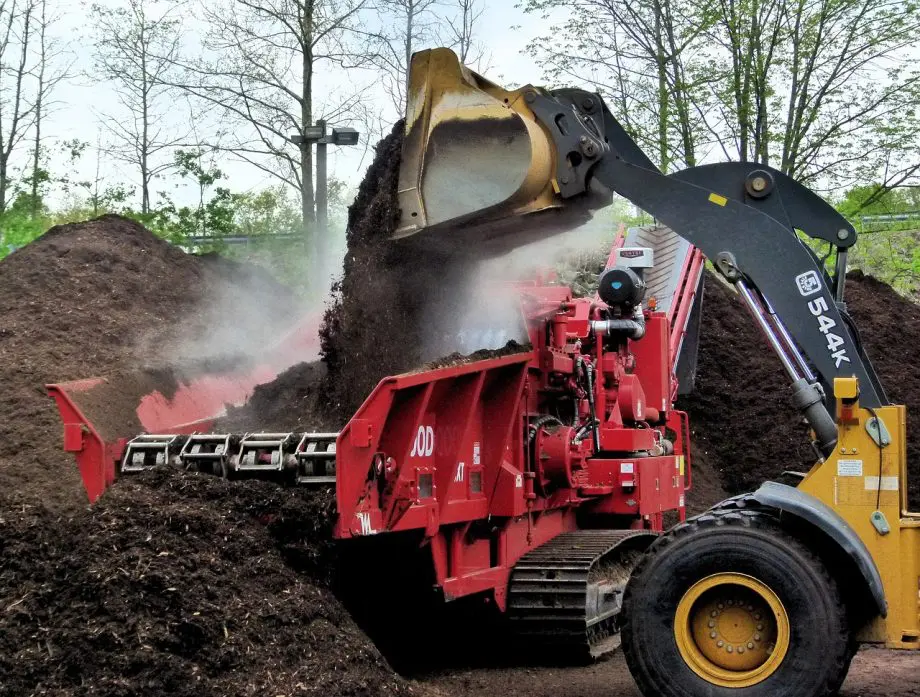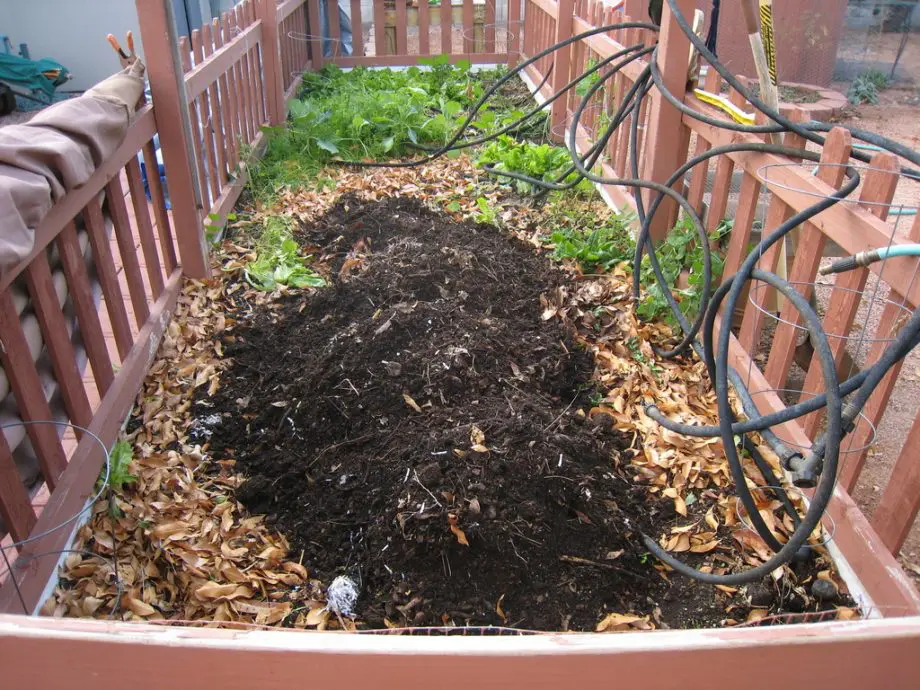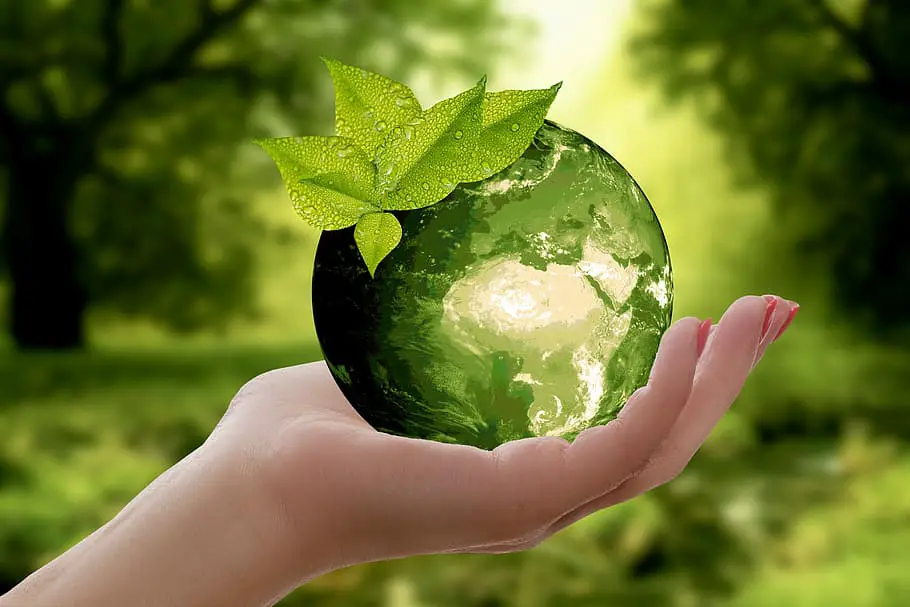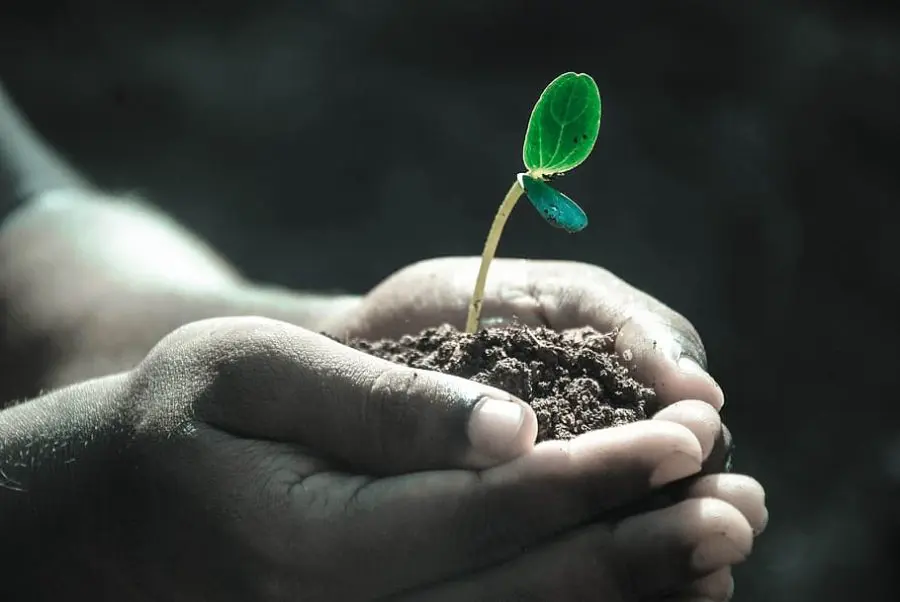
Discover the magic of composting! Learn how to use compost in your garden to boost plant health, enrich soil, and promote a greener environment. Start today!
Imagine turning your kitchen scraps and yard waste into a nutrient-rich supplement for your garden.
Sounds like a gardener’s dream, right? Well, it’s not just a dream, it’s composting!
In this guide, we’ll explore how to use compost in your garden. We’ll dive into the benefits of compost, how to create it at home, and most importantly, how to use it to transform your garden into a thriving, sustainable haven.
So, let’s roll up our sleeves and dig into the wonderful world of composting!
How to Use Compost in Your Garden
If you’re looking to give your garden a natural boost, you’re in the right place.
In this post, we’re going to delve into the art and science of how to use compost in your garden.
We’ll cover everything from the basics of composting, and the incredible benefits it brings to your soil and plants, to practical tips on making and using compost at home.
We’ll also explore how compost can be a game-changer in landscape gardening and even answer some frequently asked questions.
Ready to turn your garden into a flourishing paradise? Let’s get started!
Importance of Compost in Gardening
If you’ve ever wondered what the secret ingredient is for a thriving garden, let me introduce you to compost.
This humble mix of organic matter is like a multivitamin for your garden. It’s packed with essential nutrients that plants need to grow strong and healthy.
But the benefits of compost go beyond just feeding your plants. It also improves the structure of your soil, making it easier for roots to grow and absorb nutrients.
Plus, it’s a fantastic way to recycle kitchen and garden waste, making your gardening practices more sustainable. So, in a nutshell, compost is a garden’s best friend!
Brief Overview of the Composting Process
Now that we’ve talked about why compost is important, let’s take a quick look at how it’s made.
The composting process is nature’s way of recycling. It involves breaking down organic material, think vegetable scraps, coffee grounds, grass clippings, and leaves into a nutrient-rich soil conditioner.
The process starts with you collecting your green waste (like vegetable peels) and brown waste (like dried leaves).
You then mix these in a compost bin or pile in your backyard. Over time, with the help of microorganisms, this pile of waste transforms into compost.
It’s like a little ecosystem in your backyard, working to convert waste into a valuable resource for your garden.
In the following sections, we’ll dive deeper into how you can start composting at home and how to use the resulting compost in your garden. So, stick around!
What is Compost?
Let’s take a moment to demystify compost. You may have heard it referred to as ‘black gold’ or ‘garden gold’, and for a good reason.
But what exactly is this treasure that gardeners can’t stop raving about?
In this section, we’ll peel back the layers and get to the heart of what compost is.
So, whether you’re a seasoned gardener or a newbie with a budding interest, let’s dive in and uncover the rich world of compost!
Definition of Compost
So, what is compost? Well, in its simplest form, compost is decomposed organic matter.
It’s the end product of a process where microorganisms, like bacteria and fungi, break down organic materials such as leaves, grass clippings, and kitchen scraps.
This process, known as composting, transforms your everyday waste into a nutrient-rich soil conditioner.
The finished compost looks like dark, crumbly topsoil and has a sweet, earthy smell.
It’s nature’s way of recycling and a fantastic resource for any gardener.
Benefits of Compost to the Soil and Environment
Now, let’s talk about why compost is such a superstar in the garden.
Firstly, compost improves soil structure, making it easier for roots to grow and water to drain.
It also increases the soil’s ability to hold onto essential nutrients and moisture, which are key for plant growth.
But the benefits of compost extend beyond just your garden. Composting is a form of recycling.
By composting, you’re reducing the amount of organic waste that ends up in landfills, where it would release methane, a potent greenhouse gas.
Plus, it reduces the need for chemical fertilizers, promoting a healthier environment.
So, by using compost, you’re not only nurturing your garden but also contributing to a healthier planet. It’s a win-win situation!
How to Make Compost at Home
Ready to turn your kitchen scraps and yard waste into a gardener’s goldmine?
Making compost at home is easier than you might think, and it’s a fantastic way to reduce waste and create nutrient-rich soil for your garden.
In this section, we’ll walk you through the basics of home composting. We’ll cover what materials you need, the step-by-step process, and some handy tips to ensure your composting journey is a successful one.
So, let’s get started and turn you into a composting pro!
Materials Needed for Composting
To start your composting journey, you don’t need any fancy equipment or special materials.
In fact, you probably already have everything you need right at home. The main ingredients for compost are organic waste materials, which we can divide into two categories: greens and browns.
‘Greens’ are your kitchen scraps like vegetable peels, fruit rinds, coffee grounds, and tea bags.
They provide nitrogen, which is essential for the composting process.
‘Browns’ are things like dried leaves, twigs, paper, or straw. These provide carbon, another key ingredient for composting.
In addition to these, you’ll need a compost bin, compost tumbler, or a designated spot in your garden for a compost pile. And that’s it! You’re ready to start composting.
Step-by-Step Process of Composting
Now, let’s get into the nitty-gritty of composting. Here’s a simple step-by-step guide:
• Choose a spot for your compost pile or bin. It should be in a convenient spot that’s also out of the way.
• Start your compost pile with a layer of browns for good airflow.
• Add a layer of greens on top.
• Keep adding layers of browns and greens. Try to maintain a ratio of about 3:1 browns to greens.
• Turn your compost pile every few weeks with a pitchfork or shovel. This helps to aerate the pile and speeds up the composting process.
• Over time, your compost pile will turn into a rich, dark material that’s ready to be added to your garden.
Tips for Successful Composting
Composting is more art than science, and it might take a bit of trial and error to get it right.
But here are a few tips to set you up for success:
• Keep your compost pile balanced with the right mix of greens and browns.
• Turn your compost pile regularly to help it decompose evenly.
• Keep your compost pile as moist as a wrung-out sponge. If it’s too dry, add some water. If it’s too wet, add more browns.
• Avoid composting meat, dairy, or diseased plants as these can attract pests or create unpleasant odors.
Remember, composting is a journey. Don’t worry if you don’t get it perfect the first time.
With a bit of practice, you’ll be a composting pro in no time!
Tumbling Composter: A Convenient and Efficient Composting Solution for Any Space
Composting is a fantastic way to recycle kitchen scraps and yard waste into nutrient-rich soil amendment for your garden.
While traditional compost heaps or bins are common, a tumbling composter offers several benefits and advantages that can make the composting process even more convenient and efficient.
And the best part? There are compact models available that can even be used indoors, making composting possible for apartment dwellers.
Let’s explore the world of tumbling composters and why you might want to consider using one in your garden or even inside your apartment.
What is a Tumbling Composter?
A tumbling composter is a type of compost bin designed to be easily rotated or “tumbled”.
It’s typically a barrel or drum mounted on a frame that allows it to spin.
This design makes it easy to mix and aerate the compost materials, which can speed up the composting process.
Benefits and Advantages of a Tumbling Composter
Easy to Turn: One of the main advantages of a tumbling composter is that it’s easy to turn.
With traditional compost heaps or bins, turning the compost can be a labor-intensive process involving a pitchfork or shovel.
But with a tumbling composter, all you have to do is spin or rotate the drum.
Faster Composting: Because a tumbling composter makes it easy to regularly mix and aerate the compost materials, it can speed up the composting process.
With regular turning, a tumbling composter can produce finished compost in as little as a few weeks.
Pest Control: A tumbling composter is fully enclosed, which can help keep pests like rodents and flies out of your compost.
This can be a significant advantage if you live in an area with a lot of pests.
Odor Control: The easy aeration provided by a tumbling composter also helps control odors.
By ensuring that the compost materials are well-aerated, it encourages aerobic decomposition, which produces less odor than anaerobic decomposition.
Convenience and Versatility: A tumbling composter is compact and tidy, making it a convenient choice if you have a small garden or if you want to keep your composting operation neat and contained.
Plus, there are compact models available that are perfect for indoor use. Even if you live in an apartment, you can still compost your kitchen scraps with a compact tumbling composter.
Compost Tumbler Final Thoughts
Whether you have a spacious garden or a cozy apartment, a tumbling composter offers a convenient and efficient way to compost.
From easy turning to faster composting and better pest and odor control, a tumbling composter is a fantastic tool for any gardener or eco-conscious individual looking to make the most of their composting efforts.
So why not give it a spin? Your plants, and the planet, will thank you!
How to Use Compost in Your Garden
You’ve made your compost, and it’s looking rich and crumbly – fantastic job!
But now comes the exciting part: using your homemade compost in your garden.
In this section, we’ll guide you through the different ways you can use compost to supercharge your garden.
From amending your soil to mulching your garden beds, we’ll cover it all.
So, let’s get your hands a little dirty and learn how to make the most of your compost in your garden!
Using Compost as a Soil Amendment
One of the most common ways to use compost is as a soil amendment.
Think of it as a natural, nutrient-packed supplement for your soil.
By adding compost to your soil, you’re not only adding valuable nutrients but also improving the soil’s structure and water-holding capacity.
To use compost as a soil amendment, simply spread a layer of compost on top of your soil and then mix it in. This will give your soil a nutrient boost and help your plants thrive.
Mixing Compost into Garden Beds
Your garden beds will absolutely love a dose of compost.
Mixing compost into your garden beds can improve soil fertility, structure, and moisture retention. It’s like giving your garden bed a spa treatment!
To do this, spread a 2-3 inch layer of compost over your garden bed and then mix it into the top 6 inches of soil.
This will enrich the soil and provide a great environment for your plants to grow.
Using Compost for Container Gardening
If you’re a fan of container gardening, compost is your best friend. Mixing compost into your potting soil can significantly improve its quality.
It enhances the soil’s water-holding capacity, which is especially important for containers as they tend to dry out faster.
Just remember, compost should make up no more than 1/3 of your potting mix to ensure a balanced soil structure.
Using Compost as Mulch
Compost isn’t just for mixing into your soil; it also makes an excellent mulch.
Mulching with compost can help retain soil moisture, suppress weeds, and slowly release nutrients into the soil.
To use compost as mulch, simply spread a 2-3 inch layer of compost around your plants.
Just be sure not to pile it up against the stems of your plants to avoid any potential problems with rot.
Using Compost in Vegetable Gardens
Last but not least, let’s talk about using compost in vegetable gardens.
Compost is like a secret weapon for growing healthy, productive veggies.
It provides a slow-release source of nutrients, improves soil structure, and helps retain moisture all of which are key for growing great vegetables.
Add a layer of compost to your vegetable garden at the start of each growing season to give your veggies the best possible start.
How to Use Compost in Landscapes
Landscaping is an art, and like any artist, you need the right materials to create your masterpiece. That’s where compost comes in!
Compost can be a game-changer in landscape gardening, helping to create healthy, vibrant outdoor spaces.
In this section, we’ll explore how to use compost in your landscapes, from preparing the soil to caring for your lawn.
So, whether you’re looking to create a lush lawn, a vibrant flower bed, or a serene woodland garden, let’s discover how compost can help you achieve your landscaping dreams!
Preparing the Soil for Compost
Before you start adding compost to your landscape, it’s important to prepare the soil.
This step ensures that your compost will be most effective. Start by clearing the area of any weeds or debris.
If the soil is compacted, you might want to loosen it up with a garden fork or tiller.
This will help the compost integrate better with the soil and make it easier for plant roots to penetrate.
Once your soil is prepared, you’re ready to add compost to the top of the soil.
One of the best ways to use compost is to add it to planting holes when you transplant.
Mixing Compost into the Soil
Adding compost to your landscape is like giving it a nutrient boost. To do this, spread a 3-4 inch layer of compost over the area you intend to plant.
Then, mix the compost into the top layer of the garden soil. This will enrich the soil with nutrients and improve its structure and water-holding capacity.
Whether you’re planting a new flower bed or revitalizing an existing one, mixing compost into the soil can give your plants a great start.
Top Dressing With Compost
Top dressing with compost is a fantastic way to enrich your garden soil without disturbing the existing plants.
This method involves spreading a thin layer of compost on top of the soil surface.
Over time, the nutrients from the compost slowly seep down into the soil, providing a steady supply of nourishment to your plants.
Top dressing is particularly beneficial for established garden beds and lawns.
It not only boosts soil fertility but also helps improve soil structure, enhancing its ability to retain water and nutrients.
Plus, it’s a great way to protect the soil surface from erosion and weed growth.
So, next time you’re looking for a simple, effective way to give your garden a nutrient boost, consider top dressing with compost!
Using Compost for Lawn Care
Did you know that compost can also be a secret weapon for lawn care?
Using compost on your lawn can help create a lush, green carpet that’s the envy of the neighborhood.
To use compost on your lawn, simply spread a thin layer of finely sifted compost over the grass.
This is often called ‘top-dressing’ and is best done in the spring or fall.
The compost will slowly work its way down into the soil, providing nutrients and helping to improve soil structure and moisture retention. Your lawn will thank you for it!
Using Compost Tea: A Nutrient-Rich Brew for Your Garden

If you’ve been exploring the world of organic gardening, you might have come across the term ‘compost tea’.
No, it’s not a new health drink trend, and I wouldn’t recommend sipping it with your afternoon biscuit!
Compost tea is actually a liquid solution or extract that’s brewed from compost. It’s a fantastic way to provide your plants with a quick nutrient boost and promote healthy soil life.
Let’s dive in and learn how to brew and use this garden elixir!
What is Compost Tea?
Compost tea is essentially a water extract of compost. It’s made by steeping compost in water, much like you would steep a tea bag in a cup of hot water.
The resulting ‘tea’ is a nutrient-rich liquid that contains beneficial microorganisms from the compost.
How to Make Compost Tea
Making compost tea is a simple process, but it does require a few materials. Here’s a basic recipe:
• Start with a bucket of clean, chlorine-free water. Chlorine can kill the beneficial microorganisms in the compost, so it’s best to use rainwater or dechlorinated tap water.
• Add compost to the bucket. A good ratio is about 1 part compost to 5 parts water.
• Stir the mixture and let it steep for 24-48 hours. Stir it occasionally during this time to aerate the mixture.
• After steeping, strain the mixture through a cheesecloth or fine mesh to remove any solid particles. You’re left with compost tea!
How to Use Compost Tea
Compost tea can be used in several ways in your garden:
Foliar Spray: Compost tea can be sprayed directly onto the leaves of plants.
The nutrients in the tea are absorbed through the leaves, providing a quick nutrient boost. It can also help to suppress foliar diseases.
Soil Drench: You can also use compost tea to water your plants.
This delivers the nutrients directly to the roots and helps to promote soil microbial activity.
Compost Accelerator: Compost tea can be added to your compost pile to speed up the composting process.
The microorganisms in the tea help to break down the compost materials more quickly.
Benefits of Using Compost Tea
Compost tea offers several benefits for your garden:
• Quick Nutrient Boost: Compost tea provides a quick, easily absorbable source of nutrients for your plants.
• Promotes Soil Life: The beneficial microorganisms in compost tea help to promote a healthy soil ecosystem.
• Disease Suppression: Compost tea can help to suppress plant diseases, particularly when used as a foliar spray.
In conclusion, compost tea is a valuable tool in the organic gardener’s toolkit.
It’s a natural, cost-effective way to boost plant health and improve soil life. So why not give it a try? Your garden will thank you for it!
Benefits of Using Compost in the Garden
If you’ve been following along, you’ve probably realized by now that compost is a bit of a gardening superstar.
But we’re not done singing its praises just yet! In this section, we’re going to delve deeper into the benefits of using compost in your garden.
From boosting soil fertility to encouraging beneficial microbes, compost has a lot to offer.
So, let’s dive in and discover why compost is the unsung hero of a thriving, vibrant garden!
Compost Boosts Soil Fertility
One of the biggest benefits of using compost in your garden is the boost it gives to soil fertility.
Compost is rich in essential nutrients that plants need to grow and thrive.
These nutrients are released slowly over time, providing a steady supply of nourishment to your plants. It’s like a slow-release fertilizer that keeps on giving!
Compost Improves Soil Structure
Another fantastic benefit of compost is the way it improves soil structure.
Good soil structure is crucial for healthy plant growth. It allows roots to penetrate the soil easily and helps the soil retain the right amount of moisture.
Compost helps to improve soil structure by adding organic matter, which helps to bind soil particles together into crumbly aggregates.
Compost Enhances Nutrient and Water Retention
Compost is like a sponge, soaking up water and holding onto it until plants need it.
This is particularly beneficial in sandy soils, which tend to drain water too quickly.
By improving the soil’s water-holding capacity, compost helps to ensure that plants have access to the water they need when they need it.
In addition, compost also enhances the soil’s ability to retain nutrients, preventing them from being washed away by rain or irrigation.
Compost Encourages Microbial Activity
Last but not least, compost is a boon for the microscopic life in your soil.
The organic matter in compost provides food for beneficial soil organisms like bacteria, fungi, and earthworms.
These microorganisms play a crucial role in breaking down organic matter and making nutrients available to plants.
By adding compost to your soil, you’re not just feeding your plants, you’re also feeding these beneficial soil organisms, promoting a healthy, vibrant soil ecosystem.
Alternatives to Chemical Fertilizers
As gardeners, we all want to give our plants the best possible care. Often, this means reaching for a bag of chemical fertilizer.
But what if there was a better way? A way that’s not only good for your plants but also for the environment?
In this section, we’ll explore how compost serves as a fantastic alternative to chemical fertilizers.
We’ll delve into why compost is a better choice and how it contributes to a healthier, more sustainable garden.
So, let’s turn a new leaf and discover the green side of gardening!
Why Compost is a Better Alternative
You might be wondering, why choose compost over chemical fertilizers? Well, there are several reasons.
For starters, compost provides a slow-release source of nutrients, unlike chemical fertilizers which can often give a quick but short-lived nutrient boost.
This slow release of nutrients from compost is better for plant health and reduces the risk of over-fertilization.
Moreover, compost improves the overall health of your soil, enhancing its structure, water-holding capacity, and microbial activity.
Chemical fertilizers, on the other hand, don’t offer these benefits. They merely provide nutrients, without improving the long-term health and fertility of your soil.
Environmental Benefits of Using Compost
Choosing compost over chemical fertilizers also has significant environmental benefits.
Composting is a form of recycling. It reduces the amount of organic food waste that ends up in landfills, where it would release methane, a potent greenhouse gas.
In addition, compost is free from synthetic chemicals. This means it doesn’t contribute to the pollution of our waterways, a common problem with the runoff from chemical fertilizers.
Lastly, by using compost, you’re supporting the health of the entire soil ecosystem, including the beneficial microorganisms and insects that play a crucial role in soil health and biodiversity.
So, by choosing compost, you’re not only choosing a healthier, more sustainable option for your garden, but you’re also doing your part to protect our planet.
Now, isn’t that a good idea and a choice worth making?
How to Use Compost in Your Garden FAQs
We’ve covered a lot of ground on the topic of compost, but you might still have a few questions brewing. And that’s great!
Gardening is a journey of learning, and it’s always good to ask questions.
In this section, we’ll tackle some of the most frequently asked questions about composting and using compost in the garden.
From what you can compost from your kitchen to how long it takes for compost to be ready, we’ve got you covered.
So, let’s dive into these FAQs and quench your thirst for knowledge!
Q: What can I compost from my kitchen?
A: You can compost a wide variety of kitchen scraps. This includes fruit and vegetable peels, coffee grounds, tea bags, eggshells, and even stale bread.
Just remember to avoid composting meat, dairy, and oily foods as these can attract pests and create unpleasant odors.
Q: How long does it take for compost to be ready?
A: The composting process can take anywhere from 2 months to a year, depending on a variety of factors.
These include the materials you’re composting, the size of your compost pile, and how often you turn it.
Generally, compost is ready when it’s dark, crumbly, and has a sweet, earthy smell.
Q: Can I use compost for all types of plants?
A: Absolutely! Compost is a fantastic soil amendment for all types of plants.
Whether you’re growing vegetables, flowers, or even lawn grass, they can all benefit from the nutrients and improved soil structure that compost provides.
Q: What should I not compost?
A: While you can compost a wide variety of organic materials, there are a few things you should avoid.
This includes meat, dairy, and oily food scraps, as mentioned earlier. You should also avoid composting diseased plants, as the disease can persist in the compost and infect your garden. Other items to avoid include pet waste, coal ash, and any plants treated with chemical pesticides or herbicides.
Using Compost in Your Garden Conclusion

We’ve journeyed through the world of compost, from understanding what it is to exploring its many benefits and uses in the garden.
But as we reach the end of our composting adventure, it’s time to reflect on what we’ve learned and look forward to how we can apply this knowledge in our own gardens.
In this concluding section, we’ll recap the importance and benefits of using compost and leave you with some final thoughts on sustainable gardening practices.
So, let’s wrap up and get ready to turn our gardens into thriving, sustainable havens with the help of compost!
Recap of the Importance and Benefits of Using Compost
As we’ve discovered, compost is truly a gardener’s best friend.
It’s a natural, nutrient-rich soil amendment that can transform your garden.
By using compost, you’re not only boosting the fertility of your soil but also improving its structure and water-holding capacity.
This leads to healthier, more robust plants and a more productive garden.
But the benefits of compost extend beyond just your garden. Compost also plays a crucial role in reducing waste and contributing to a more sustainable planet.
By composting your kitchen scraps and yard waste, you’re diverting these materials from the landfill and turning them into a valuable resource.
Encouragement for Sustainable Gardening Practices
As we conclude, I want to encourage you to continue exploring sustainable gardening practices.
Composting is just one piece of the puzzle. There are many other practices you can adopt, such as water conservation, organic gardening, and creating habitats for beneficial wildlife.
Remember, every small action counts. By choosing to compost, you’re taking a significant step towards creating a more sustainable garden and a healthier planet.
So, keep up the great work, and happy composting!









